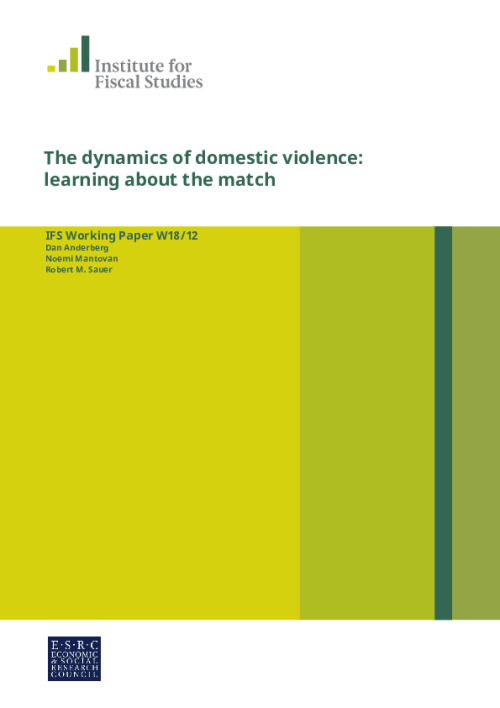Downloads

WP201812.pdf
PDF | 495.89 KB
We present a dynamic lifecycle model of women’s choices with respect to partnership status, labour supply and fertility when a male partner’s true tendency for abusive behaviour is unobserved. The model is estimated by the method of simulated moments using longitudinal data from the Avon Longitudinal Study of Parents and Children. The results indicate that uncertainty about a partner’s abusive type creates incentives for women to delay fertility, reduce fertility overall, divorce more often and increase labour supply. We also study the impact of higher female wages, income support to single mothers, and subsidized childcare when the mother is working. While higher wages reduce women’s overall exposure to abuse, both income support and subsidized childcare fail to do so because they encourage early fertility. Income support also leads to less accumulated labour market experience and hence higher abuse rates.
Authors

Research Fellow Royal Holloway University of London
Dan is a Research Fellow of the IFS and a Professor of Economics at Royal Holloway University of London and received his PhD from Lund University.

Robert Sauer

Noemi Mantovan
Working Paper details
- DOI
- 10.1920/wp.ifs.2018.W1812
- Publisher
- The IFS
Suggested citation
D, Anderberg and N, Mantovan and R, Sauer. (2018). The dynamics of domestic violence: learning about the match. London: The IFS. Available at: https://ifs.org.uk/publications/dynamics-domestic-violence-learning-about-match (accessed: 30 June 2024).
More from IFS
Understand this issue

If you can’t see it, you can’t be it: role models influence female junior doctors’ choice of medical specialty
24 April 2024

Retirement is not always a choice that workers can afford to make
6 November 2023

IFS contributor Claudia Goldin wins Nobel Prize in economics
9 October 2023
Policy analysis

The Conservatives and the Economy, 2010–24
3 June 2024

A decade and a half of historically poor growth has taken its toll
3 June 2024

How do the last five years measure up on levelling up?
19 June 2024
Academic research

The impact of labour demand shocks when occupational labour supplies are heterogeneous
28 June 2024

The intergenerational elasticity of earnings: Exploring the mechanisms
3 June 2024

Targeting men, women or both to reduce child marriage
28 May 2024